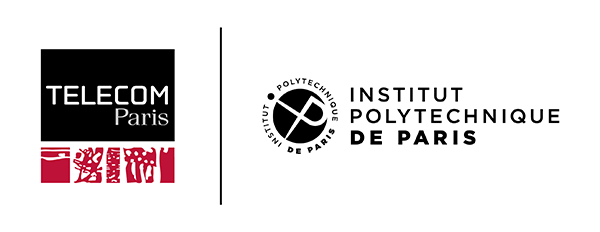
|
Telecom Paris
Dep. Informatique & Réseaux  J-L. Dessalles
← Home pageJuly 2023
J-L. Dessalles
← Home pageJuly 2023 |

 Module Athens TP-09
Emergence in Complex Systems
Module Athens TP-09
Emergence in Complex Systems
| Jean-Louis Dessalles - Associate professor at Telecom-Paris |
| Ada Diaconescu - Associate professor at Telecom-Paris |
| Julien Lie-Panis - final year PhD student at Telecom-Paris and Institut Jean Nicod |
| Gabriel Damay - PhD student at Telecom-Paris |

➜ [ Read the General presentation of the course ]
Topics
Slides
|
|
Docs
- Students’ reports 2022
- Small worlds (Pierre Senellart)
- Structure and models of real-world graphs and networks (Jure Leskovec)
Forum
|
Please express any thought, advice, global question that may occur to you about the course, and see others’ input.
(try to express yourself in a constructive style) |
Personal Work
- Your answers during the Lab Work sessions are recorded.
- You are expected to make a personal contribution (project) during the week.
- There will be a small quiz on the last day.
Your Project
- You may choose one of the "Suggestions for further work" mentioned in the lab sessions, but you are free to choose any topic that you regard as relevant.
- Your study should be based on simulation results.
- You should seek for simple and clear-cut results from which we can learn something (even if you study is inconclusive, we want to know clearly why). Initiative and logical clarity will be appreciated.
- Try to be realistic about what you can do. Your study should not be trivial, and it should lead somewhere.
- Your contribution shoud be achieved using the Evolife platform. If it involves code, this code should be in Python.
- the two partners should be from different universities (and from countries if possible).
- both partners should enter the same project (title, description) on the site.
- Both members of the pair should be heard during the Friday presentation.
- If you opt for a common report, then the report should include two separate parts that make clear who did what.
You may decide as soon as Tuesday evening.
If you change your mind, redo the inscription.
➜ You may consult the others’ projects. Try to play a minority game in your choice!
On Thursday evening :
- Please upload a few slides (typically three) that illustrate your work (.pdf or .ppt or .pptx; openoffice should also be ok).
Try to be visual, avoid text (please avoid bullet lists!).
DON’T SEND ANYTHING THROUGH EMAIL. Use the upload program.
To capture images from Evolife, use the [Photo] button (or [P] shortcut). To make movies, press [V] to enter the film (or video) mode.
Images are stored in ___Result; you have to assemble them to make a movie (see Evolife documentation). Avoid embedding movies into .pptx, or only as gif images.
On Friday
- You will be ask to talk during 3 minutes about your small study (from you seat). Your audience is not the teachers, but the other students.
- Be interesting
- Be scientifically sound
- You will be asked to answer a small quiz in English (~ 20 min.)
Report
- The code and the written description might be uploaded until the next Tuesday after the Athens week (in the evening).
- Write you report ➜ Please use this template: MSWord or LibreOffice or LaTeX or Pdf
- Upload your program and any relevant material ➜ Uploading page
Bibliography
- Amblard, F. & Phan, D. (2007). Agent-based modelling and simulation in the social and human sciences. Oxford: The Bardwell-Press.
- Bonabeau, E., Dorigo, M. & Theraulaz, G. (1999). Swarm intelligence: from natural to artificial systems. Oxford: Oxford University Press.
- Camazine, S., Deneubourg, J.-l., Franks, N. R., Sneyd, J., Theraulaz, G. & Bonabeau, E. (2001). Self-organization in biological systems. Princeton, NJ: Princeton University Press.
- Dessalles, J.-L. (1996). L’ordinateur génétique. Paris: Hermes Science.
- Dessalles, J.-L., Gaucherel, C. & Gouyon, P.-H. (2016). Le fil de la vie - La face immatérielle du vivant. Paris: Odile Jacob.
- Dessalles, J.-L. (2014). Optimal investment in social signals. Evolution, 68 (6), 1640-1650.
- Easley, D. & Kleinberg, J. (2010). Networks, crowds, and markets: Reasoning about a highly connected world. Cambridge University Press.
- Grafen, A. (1990). Biological signals as handicaps. Journal of Theoretical Biology, 144 (), 517-546.
Links
- Urban, T. (2019). A game of giants. Wait but why.
- Helbig, R. (2016). Four misconceptions about evolution. K!nea Media.
- Complex systems on YouTube
- Bibliography on evolutionary computation
- A nice video on emergence
